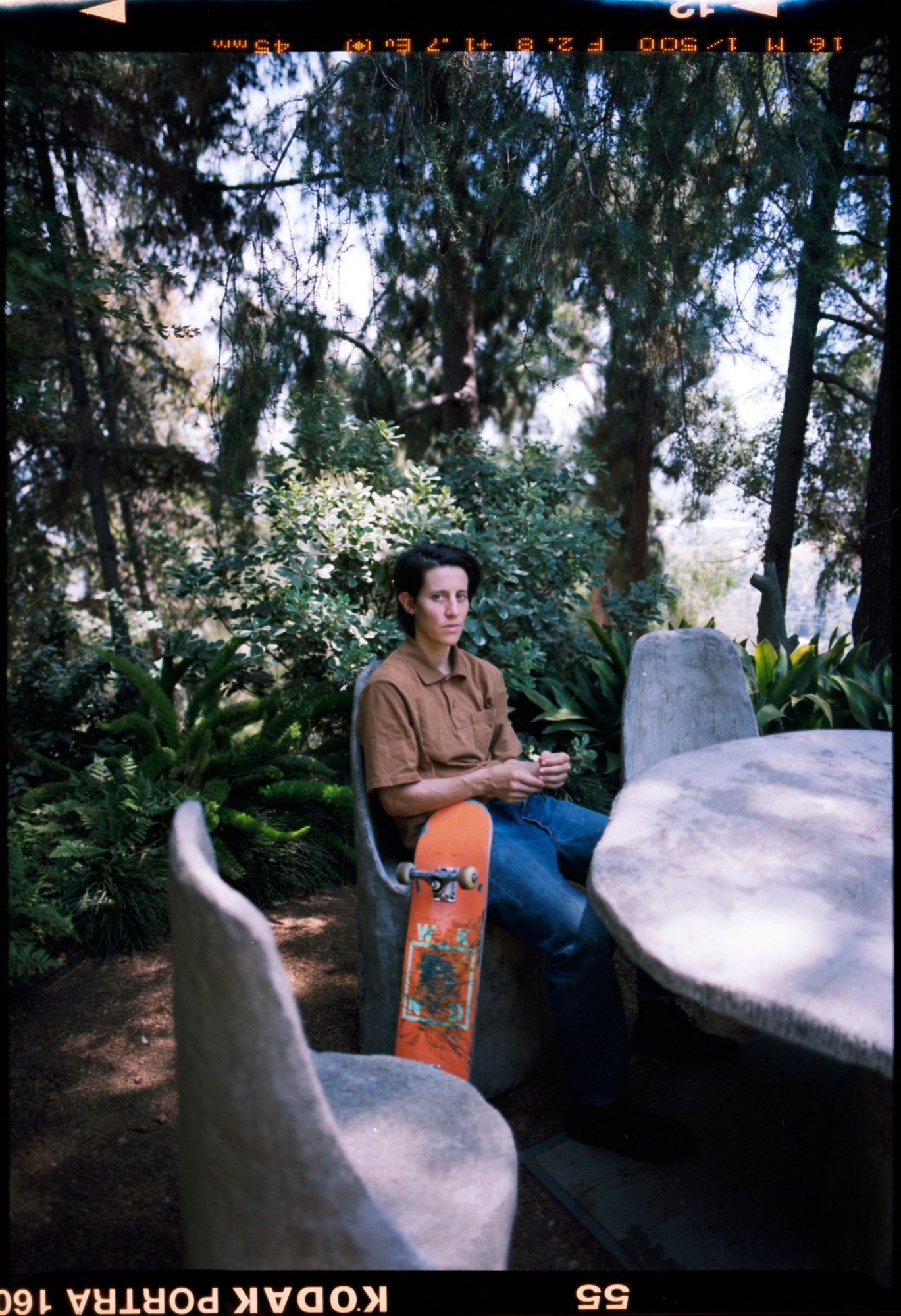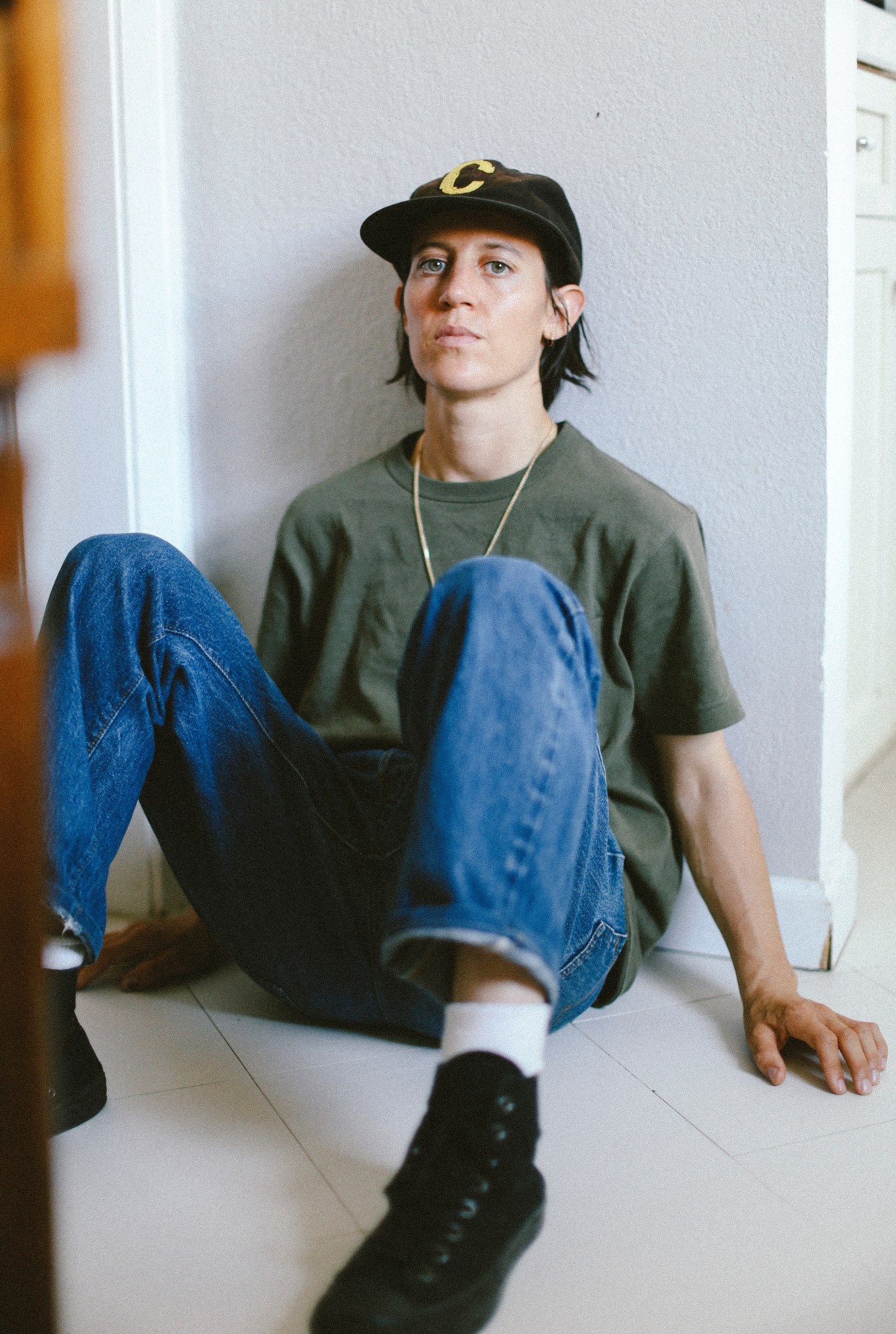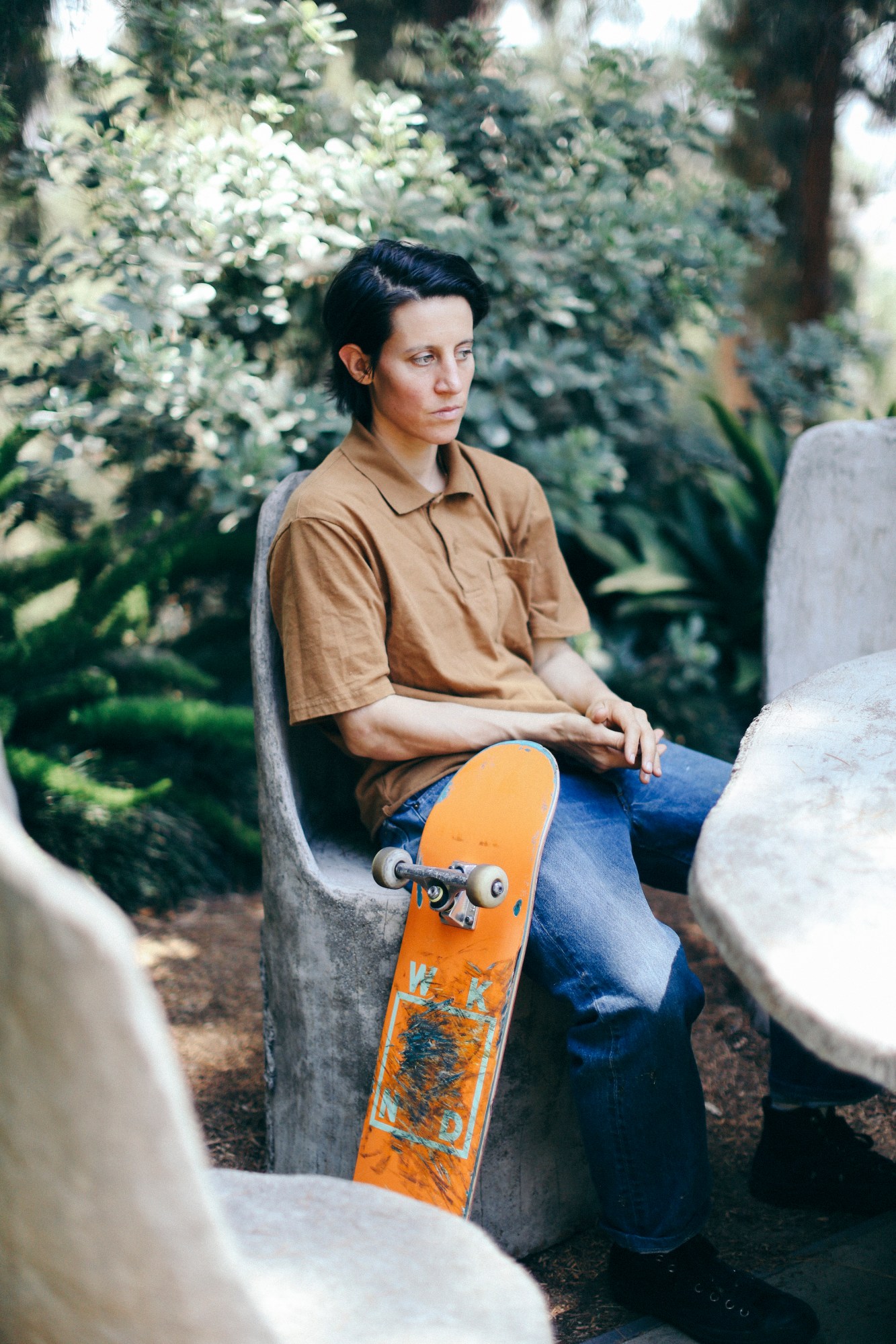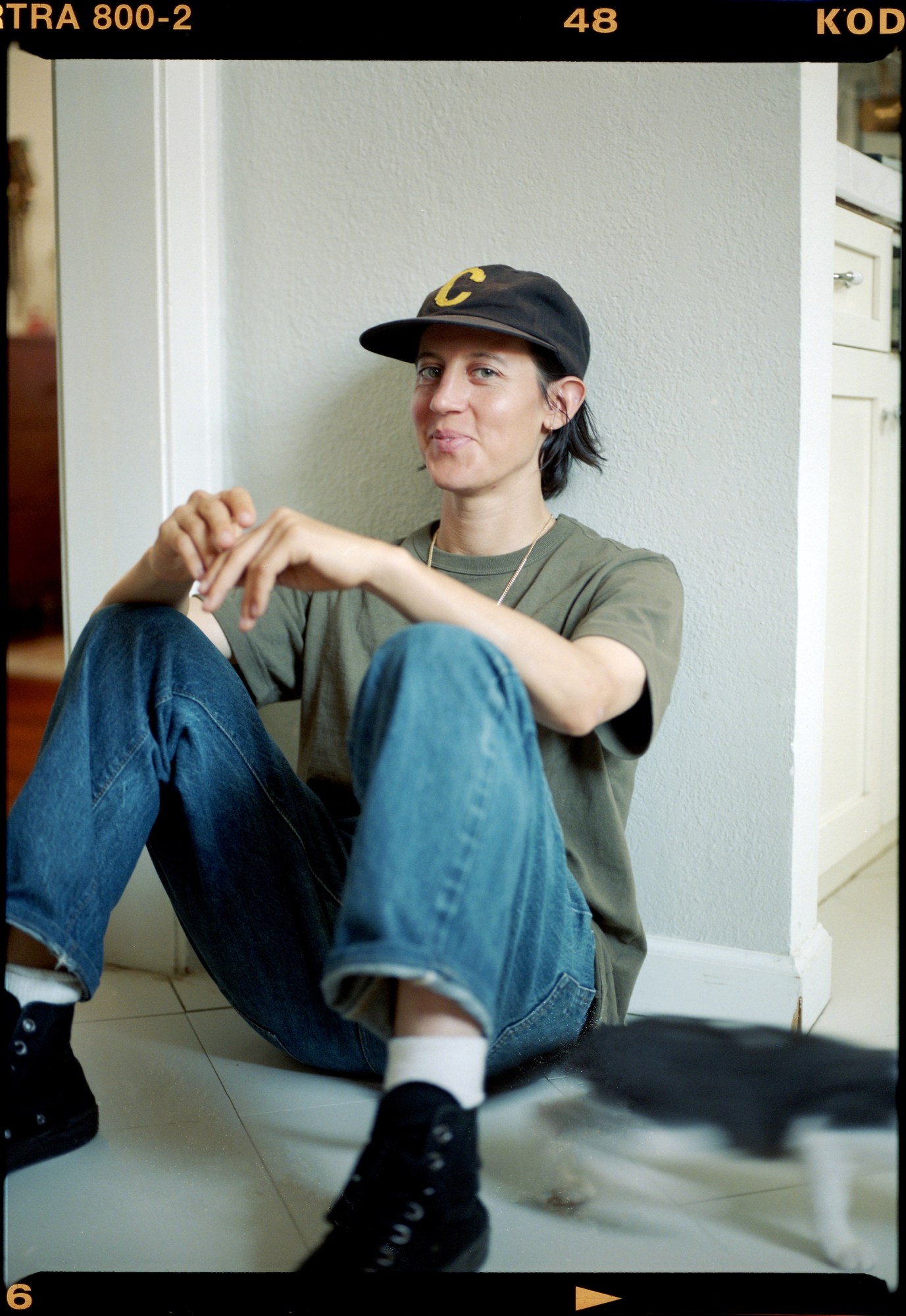When Alexis Sablone was nine, she began teaching herself to skateboard in her garage by watching old VHS tapes and trying to mimic what she saw. By 12, she was sponsored. It was the mid- to late-90s and aside from Jaime Reyes and Elissa Steamer (the first female pro-skater ever) there were few other women on the scene who received widespread recognition. So when Sablone was featured in the now-groundbreaking 2002 skate film P.J. Ladd’s Wonderful, Horrible, Life at 16, it was a monumental deal. The video would ultimately prove to be the first of a long list of Sablone’s achievements that would help bring more visibility to women in skateboarding while also cementing her, now 32, as a female trailblazer within and outside of the sport.
To date, Sablone holds a cool seven X Games medals under her belt: three gold, two silver, and two bronze. She received her first pro model deck in 2017 when she was invited to join the WKND Skateboards team and in doing so, became their first female member ever. In March 2019, it was announced that Sablone would be joining the ranks of another esteemed crew: the inaugural USA Skateboarding National Team. Skateboarding will debut as an Olympic event at the 2020 Summer Games in Tokyo, meaning Sablone will be among the first class of athletes to champion the sport on such a global and distinguished scale. And finally, to round out what’s already been an epic year, the athlete released her first pro model sneaker (a rarity for female skaters) via a collaboration with Converse in May.
Sablone’s had a history-making skate career, but that’s not even the half of it. After graduating from Columbia University with a degree in architecture in 2008, she went on to get her master’s in the subject from the Massachusetts Institute of Technology in 2016. Having excelled at math and art forms like drawing and sculpture from a young age, it was a field that simply clicked for Sablone. In 2018, her two worlds collided when she was asked to design a skateable sculpture for a public square in Malmö, Sweden. Called “Lady in the Square,” it’s an oversized Picasso-like interpretation of a female face (think a severely triangular nose and puffy, cloud-like lips) and is yet another way Sablone has helped ensure there will always be space for women at the skatepark.

Ahead of the summer X-Games taking place in Minneapolis, Minnesota from August 1-4, i-D spoke with Alexis about why she almost quit competitive skating and what she hopes the Olympics will do for the sport.
You learned to skate during a time when it was still a pretty under-the-radar sport. Are you glad that was the environment?
I think that was the appeal. Even if you didn’t know what you were doing you could still feel yourself progressing, you know? I wouldn’t have wanted to start at any other time in skating, it’s a very nostalgic thing. To me, that era was the best, the golden age. Now, it’s really different, but it’s so cool to see so many more different types of people skating. As it gets bigger there’s the potential for it to become even more inclusive. I’m seeing more girls skating than I ever would have before, so that’s really incredible. It’s cool to see it change in dramatic ways and be a part of it.
Why is representation so important?
Skateboarding is for everybody—it’s for anybody that loves it. It’s important for young people to see examples of all types of skaters so they understand that it can be a place for them too and that their individuality will only make skateboarding as a whole richer, better.
Who were your skate idols when you were just starting out?
Brian Anderson, Donny Barley, and Mike Maldonado.
At what point did you decide you wanted to go pro?
Honestly, I wouldn’t say there was a moment. If anything, there were moments when I thought that I didn’t want it to be more than a passion. I got sponsored when I was 12 and did a few competitions shortly after that went pretty well. I skated for Elements back then, and for my third competition, they flew me out to California and I sprained my ankle really badly on the first trick I tried. I was young and it just felt devastating. I decided I hated contests and never wanted to do one again. It was a transitional moment where I was starting to get paid for skateboarding but I felt like I didn’t want that to take over, I didn’t want my relationship with skating to change. So, I quit my sponsors. I was still in the skate scene for years after that doing video parts and getting coverage, but competitions really didn’t become a part of my life again until after college.
What made you decide to start competing again?
I graduated in 2008, so economically it was not a great time. The realities of being a little bit older and having to provide for myself set in and suddenly, the idea of being able to do that with something I love and something that allowed me to have a lot of freedom seemed more appealing. I was working at a restaurant and there was a kitchen fire so we were all out of jobs for a couple of months while they repaired the kitchen. That just happened to be right when there were a couple of contests for women that had really big prize purses. I had some connections in the skate world so I got into the competitions, and then I ended up doing well and being able to live off that money. It ultimately helped put me through grad school.

What drew you to architecture?
Originally it was like, “Oh, you like art and math? Why don’t you think about architecture?” My actual experience studying it in undergrad was so much more than I anticipated, and it was so interesting. Architectural theory really ties together so many disciplines in an academic setting, like philosophy and design and art. I also think there are a lot of overlaps between skateboarding and architecture. Just the creative process and approaching space with the intention to do something different with it. In the case of architecture, it’s to design something new in a space and create new spacial conditions; in skateboarding, it’s about reimagining uses for existing architectural elements with your skateboard.
Are you working on any architectural projects now?
I’ve been on several panels discussing public space and design within the context of architecture. I also had the opportunity to do a large scale skateable sculpture [in Malmö, Sweden], and I’m working on another right now that’s in West Palm Beach, Florida.
You’re about to skate in your 16th X-Games—is there one memory or one win from the competition that’s stuck out over the years?
The level of competition has gotten so high now. It used to be that maybe only a couple people could beat me and now if there are eight people in the competition, any one of us really has the potential to win. The stakes have changed and the competition has changed, so rather than what stands out it’s more like—what’s been constant is that I’ve always just tried to do my best, honestly. All the times I placed in the X-Games were good times because to go from feeling that amount of pressure to then realizing it’s somehow it’s worked out pretty well, it’s pretty surreal for a day or for a week before it fades and you go back to real life. You’re just so happy with yourself in that moment.
How does it feel to be part of America’s first Olympic skateboarding team?
It’s very surreal. I started skateboarding at a time when it was really different and the idea of it even being included in the Olympics was really not on anyone’s mind. Now that I’m here though, it’s an incredible honor. I’m definitely not the youngest person out there, I’m probably the oldest person out there—I am! — so the fact that I’m still doing this after all these years and I’m still valid and a part of this, it does feel really rewarding. It means a lot.
What will skateboarding being added to the Olympics mean for the sport?
There’s a misconception that because skateboarding grew out of a counterculture and was not in any way an organized sport it was a thing for slackers. What people are missing when they see it that way is that it’s a really unique thing, it’s very creative and takes a lot of determination. You look at any skateboarder, good or bad, and there’s this passion. Falling is not just a possibility, it’s almost a given and that doesn’t prevent people from skateboarding. So putting the sport on the world stage, I think it will help skateboarding gain a newfound respect from people that don’t already love it.
Beyond that, the Olympics have really done a lot for gender equality in terms of being a place where women are paid fairly and valued. Just in the last few years, [female skateboarders] went from basically not earning any money outside of competition to being able to make a living, and I credit the Olympics for a lot of that. I wish this wasn’t the case, but I think it’s really made certain corporations see the value in women in skateboarding where before they would be like Oh, there’s just no market, no one’s interested. It’s changed that a lot. To me, that’s a huge deal.

